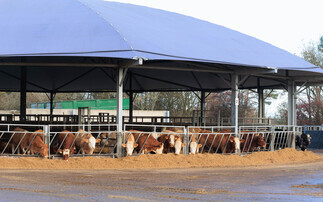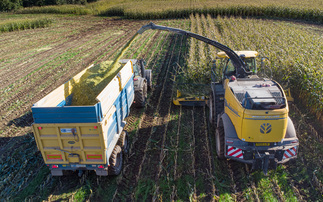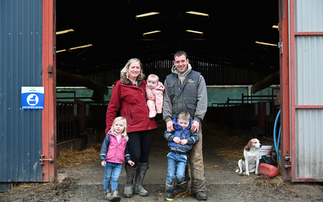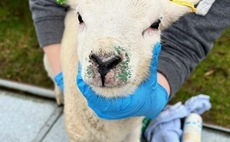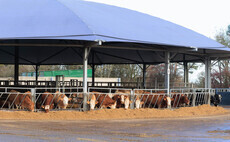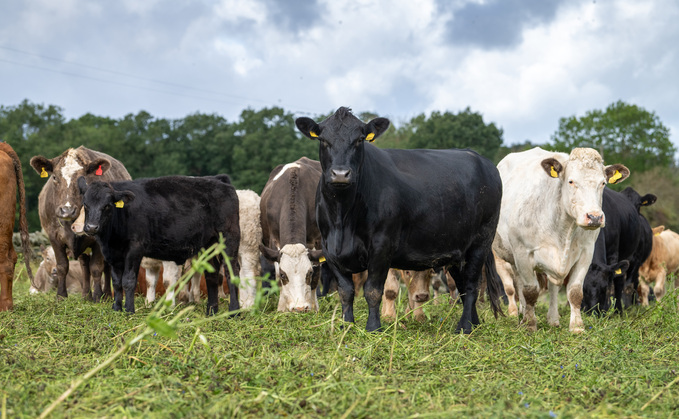
Could you identify bluetongue on farm?
What is bluetongue?
Bluetongue is a notifiable disease which affects cattle, goats, sheep and camelids.
Despite being a harmful virus to animals, it does not affect people or food safety, and meat and milk from infected animals are safe to eat and drink.
The virus is primarily transmitted by midge bites, but it can also be spread through semen and embryos.
Latest updates on bluetongue��
May 13, 2025:�� From 27 May 2025, the length of time that pre-movement test samples are valid is changing from 21 days to 10 days.��Samples taken:
- until 11:59pm on 26 May 2025 are valid for 21 days
- on or after 27 May 2025 are valid for 10 days
You must time your sampling so that the samples are still valid on the planned move date.
May 13, 2025:��Pre-movement testing exemptions have been extended to 12 June 2025. This means that you do not have to test non-breeding animals over 60 days old before moving them out of the restricted zone.
You must����to move animals out of the restricted zone.
The animals you currently have to test are:
- entire males intended for breeding
- females that are pregnant or have unknown pregnancy status
- youngstock that are under 60 days old at the time of movement - these animals require a single test before they can be moved - unless they are travelling at foot with the maternal dam, in which case you can just test the maternal dam by��PCR��and ELISA
- animals being moved for germinal product collection (ova, semen or embryo)
This exemption may end sooner if the risk of bluetongue transmission increases.
April 30, 2025:��Vaccination against BTV-3 is now permitted in Scotland. Farmers are advised to discuss vaccination with their vet.��Keepers should ensure vaccinated cattle, sheep and goats are recorded on ScotEID and other susceptible species are reported
March 3, 2025: Exeter sales cancelled as sheep show 'bluetongue symptoms' after negative FMD test –��Kivells Agriculture confirmed that an 'Apha incident' had resulted in the cancellation of primestock market sales at Exeter Livestock Centre on Monday (March 3).
November 26, 2024:��Bluetongue updates: Cambridgeshire, Bedfordshire, Hertfordshire, Greater London, Surrey and West Sussex now under a restricted zone
September 2024
Speaking at a recent AHDB webinar, Gordon Hickman, head of exotic disease control at Defra, reminded farmers that if bluetongue was suspected on farm, it was a legal requirement to report it immediately to the Animal and Plant Health Agency (APHA).
The first UK case in the latest outbreak, serotype 3, was seen in November 2023 through the UK's annual bluetongue surveillance programme.
Mr Hickman said: "There have been more than 4,000 cases of BTV-3 on farms in Germany, Belgium and the Netherlands since May."
While in the UK, the APHA has confirmed 43 cases of BTV-3��have been detected on 15 farms in Suffolk and Norfolk since August 26.
Since November, there have been 169 detections of the airborne virus on farms in Kent, Suffolk and Norfolk.
LISTEN NOW:
What should farmers be doing to be prepared?
Control of midges is difficult and, although there are things that can be done to reduce their spread, it is unlikely that the risk can be completely removed on any individual farm.
However, Mr Hickman said there were steps that could help reduce the risk.
"Midges often accompany animals as they move, so movement controls and restrictions for susceptible livestock in high-risk areas can minimise the risk of infected animals without clinical signs moving the disease between holdings," he said.
He encouraged farmers to continue to be vigilant and monitor their animals frequently, and ensure their businesses have a contingency plan to respond to the disease outbreak and its disease control zone.
Farmers should also make sure both their livestock and land, including buildings and short-term lets, are registered with APHA.
READ NOW:��Vaccination in focus in battle against bluetongue
Clinical signs of bluetongue
- Fever
- Reddening of the mucosal membranes
- Sores on the nose, gum and dental pads
- Swelling of the face, lips and tongue
- Lameness
- Death and abortion or deformities in lambs or calves
- The 'blue tongue', from which the disease gets its name, is not frequently seen but refers to swelling
Facts about bluetongue virus
- Only the female midges bite. They require protein from a blood meal to produce eggs
- The virus cannot be passed to midge offspring, so any emerging larvae will not be infected
- Midges are active between April and November
- The virus can only be transmitted when temperatures are above 15degC
- Midges typically bite from 4pm to 8am and can travel 3km across land
- The infection period for ruminants is 60 days
- It is possible for adult midges to overwinter
READ NOW: 'Long road ahead' with bluetongue





